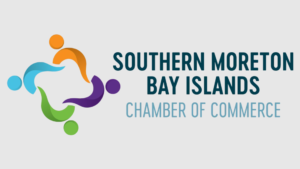Can “self declared income” loans for business owners ever be a good option?

In the complex world of business financing, traditional lending pathways often present significant hurdles for business owners. The extensive documentation requirements, lengthy approval processes, and strict eligibility criteria can make accessing capital unnecessarily challenging. Enter “self declared income” business loans – an alternative financing solution that’s gaining traction among savvy business owners seeking flexibility and speed. While not suitable for every situation, these specialised lending products offer distinct advantages that conventional financing simply cannot match.
Streamlined Access to Capital
The most immediate benefit of “self declared income” business loans is in the name itself – the dramatic reduction in paperwork. Traditional business loans typically require years of financial statements, tax returns, bank statements, business plans, and detailed projections. This documentation burden can be particularly challenging for businesses with complex structures or those in rapidly evolving industries where historical performance may not reflect future potential.
“Self declared income” business loans prioritise factors beyond paperwork, such as the business’s track record of cash flow (often verified through bank transactions rather than formal statements) and the value of available collateral. This approach cuts the application process from weeks to hours in some cases, providing crucial funding when time-sensitive opportunities arise.
Ideal for Asset-Rich, Documentation-Light Businesses
Many successful businesses operate in ways that don’t neatly translate to the documentation requirements of traditional lenders. Self-employed professionals, businesses with significant cash components, or those with complex tax structures often find themselves asset rich but documentation poor from a conventional lending perspective.
“Self declared income” business loans bridge this gap by focusing on the security behind the loan rather than extensive financial verification. By leveraging business or personal assets as security, these loans create pathways to capital that might otherwise remain inaccessible despite the underlying business strength.
Flexibility for Seasonal and Variable Income Businesses
Businesses with highly seasonal or variable income patterns – from tourism operators to agricultural enterprises to retail operations – often struggle with traditional lending models that expect consistent monthly income. “Self declared income” business loans typically assess the overall business viability rather than demanding consistent income proof, making them well-suited to businesses with natural fluctuations in their cash flow.
This flexibility allows seasonal businesses to access capital during their off-peak periods when they might most need it but are least able to demonstrate strong recent performance through conventional documentation.
Privacy and Competitive Advantage
For businesses operating in highly competitive industries, the extensive disclosure requirements of traditional loans can create unintended exposure of sensitive business information. “Self declared income” business loans minimise the distribution of proprietary business details, financial strategies, and growth plans that might otherwise circulate through multiple departments of traditional lending institutions.
This privacy benefit extends to business owners who may have complex but entirely legitimate tax minimisation strategies that, while legal, could complicate traditional loan applications or trigger unnecessary scrutiny.
Speed When It Matters Most
Business opportunities rarely arrive with convenient timelines that align with traditional bank approval processes. When an opportunity for expansion, acquisition, or inventory purchase emerges unexpectedly, the weeks-long waiting period for conventional financing can mean the difference between seizing or missing a pivotal moment.
No document loans excel in these situations, often providing funding within days of application. This speed can transform the loan from merely a financial instrument into a strategic business tool that enables agility in competitive markets.
Navigating Temporary Documentation Challenges
Some businesses face temporary documentation challenges despite otherwise strong fundamentals. Recent restructuring, system migrations, changes in accounting practices, or even natural disasters affecting record-keeping can create short-term documentation gaps that traditional lenders may view unfavorably.
“Self declared income” business loans provide a bridge through these temporary situations, allowing businesses to access necessary capital while they resolve documentation issues or build the history required for more traditional financing options in the future.
The Strategic Approach
While “Self declared income” business loans offer significant advantages, they work best as part of a strategic financing approach. Their higher interest rates compared to fully documented loans mean they’re often most effective for shorter-term needs or situations where the opportunity cost of waiting for traditional financing exceeds the premium paid for documentation flexibility.
When properly leveraged with professional guidance, “Self declared income” business loans can be a powerful addition to a business owner’s financial toolkit – providing the right capital at the right time when traditional paths might lead to missed opportunities.
Please note: “Self declared income” business loans are aimed at business owners for business purposes only and are not designed to be offered to employees, the retired or non income generating persons.

 Previous Post
Previous Post Next Post
Next Post
